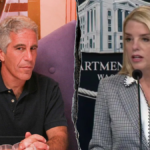A mysterious impersonator masquerading as Secretary of State Marco Rubio has reached out to three foreign ministers and two high-level US officials.
The identity of the imposter is not yet known, but he seemingly has “the goal of gaining access to information or accounts,” warned a July 3 missive sent to State Department employees and obtained by the Washington Post.
In addition to the three unidentified foreign officials, the Rubio impersonator made contact with a state governor and a member of Congress, the report said.
“The actor left voicemails on the private encrypted messaging app Signal for at least two targeted individuals and in one instance, sent a text message inviting the individual to communicate on Signal,” the State Department warning said.
Authorities believe that the ruse began sometime around mid-June and noted that the scammer set up a Signal account with the name “Marco.Rubio@state.gov” — not Rubio’s actual email — to correspond.
The imposter worked to imitate the secretary of state’s writing style and voice in the messages, tapping into artificial intelligence-powered software to do so, the Washington Post said.
The State Department warning about the incidents did not make it clear whether any of the contacted officials engaged “Rubio.”
Employees were urged to alert the Bureau of Diplomatic Security about “any impersonation attempts.”
“The State Department is aware of this incident and is currently investigating the matter,” a spokesperson for the department told The Post.
“The Department takes seriously its responsibility to safeguard its information and continuously takes steps to improve the department’s cybersecurity posture to prevent future incidents.’
Revelations about the Rubio imposter come on the heels of multiple high-profile impersonations.
In May, a bad actor gained access to White House chief of staff Susie Wiles’ phone system and began reaching out to various politicians and business leaders, according to the Wall Street Journal.
That same month, the FBI broadly warned about efforts to impersonate US policymakers.
“Since April 2025, malicious actors have impersonated senior US officials to target individuals, many of whom are current or former senior US federal or state government officials and their contacts,” the FBI said.
“If you receive a message claiming to be from a senior US official, do not assume it is authentic.”
In March, Signal made national headlines when a chat organized by then-national security adviser Mike Waltz and including Rubio and other top Trump administration officials accidentally looped in Atlantic magazine editor-in-chief Jeffrey Goldberg.
The discussion involved a planned US attack on Iran-backed Houthis in Yemen.
The flub, dubbed “Signalgate,” triggered controversy over top officials using the encrypted — but publicly available — messaging service instead of other, more secure government communications networks.


